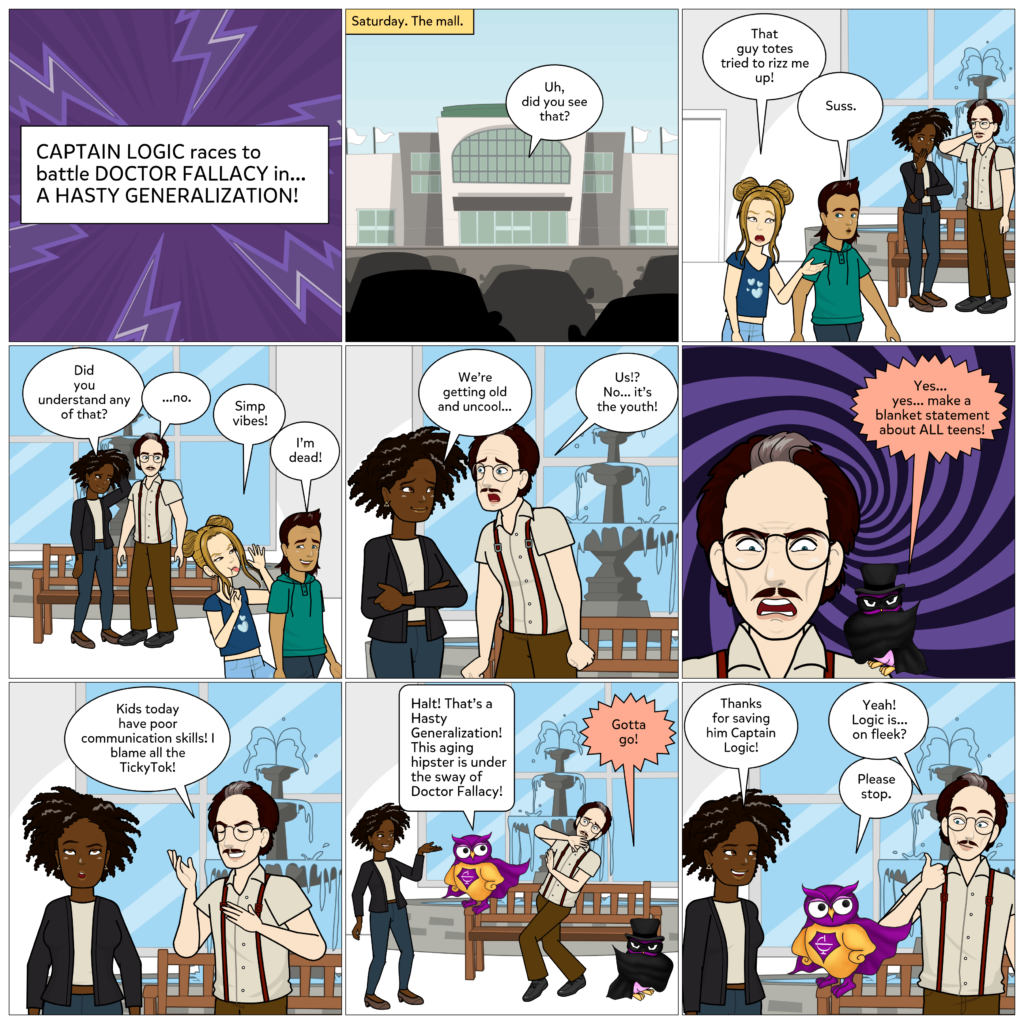La falacia de la generalización precipitada se denomina a veces falacia de la sobregeneralización. Esta falacia se produce cuando un argumento se basa en un conjunto de pruebas simplemente demasiado pequeño. Por ejemplo, si su tío era fumador de cigarrillos de toda la vida y vivió hasta los noventa años, sería una generalización precipitada afirmar que los fumadores tienen una esperanza de vida elevada basándose en pruebas tan limitadas.
En nuestro cómic a continuación, usted'll ver cómo una generalización precipitada puede ocurrir en la vida cotidiana:

Para ver una versión del cómic compatible con lectores de pantalla, haga clic en las siguientes imágenes:
En nuestro ejemplo, la generalización precipitada tiene muy poco en juego, pero la falacia puede darse en contextos mucho más amplios. En estadística o en encuestas, por ejemplo, una generalización precipitada puede ocurrir cuando la investigación tiene un tamaño de muestra demasiado pequeño. Unos datos defectuosos como ésos podrían dar lugar a malas decisiones políticas que no respondan a las necesidades de la comunidad.
Las generalizaciones precipitadas también pueden conducir a la creación de estereotipos. Cuando la gente hace afirmaciones basadas en pruebas limitadas, los resultados no sólo pueden ser erróneos, sino peligrosos. Es muy fácil caer en este tipo de pensamiento, por lo que debemos trabajar para evitarlo. Debemos asegurarnos de que nuestra investigación es representativa y de que nuestro pensamiento no es estrecho.
